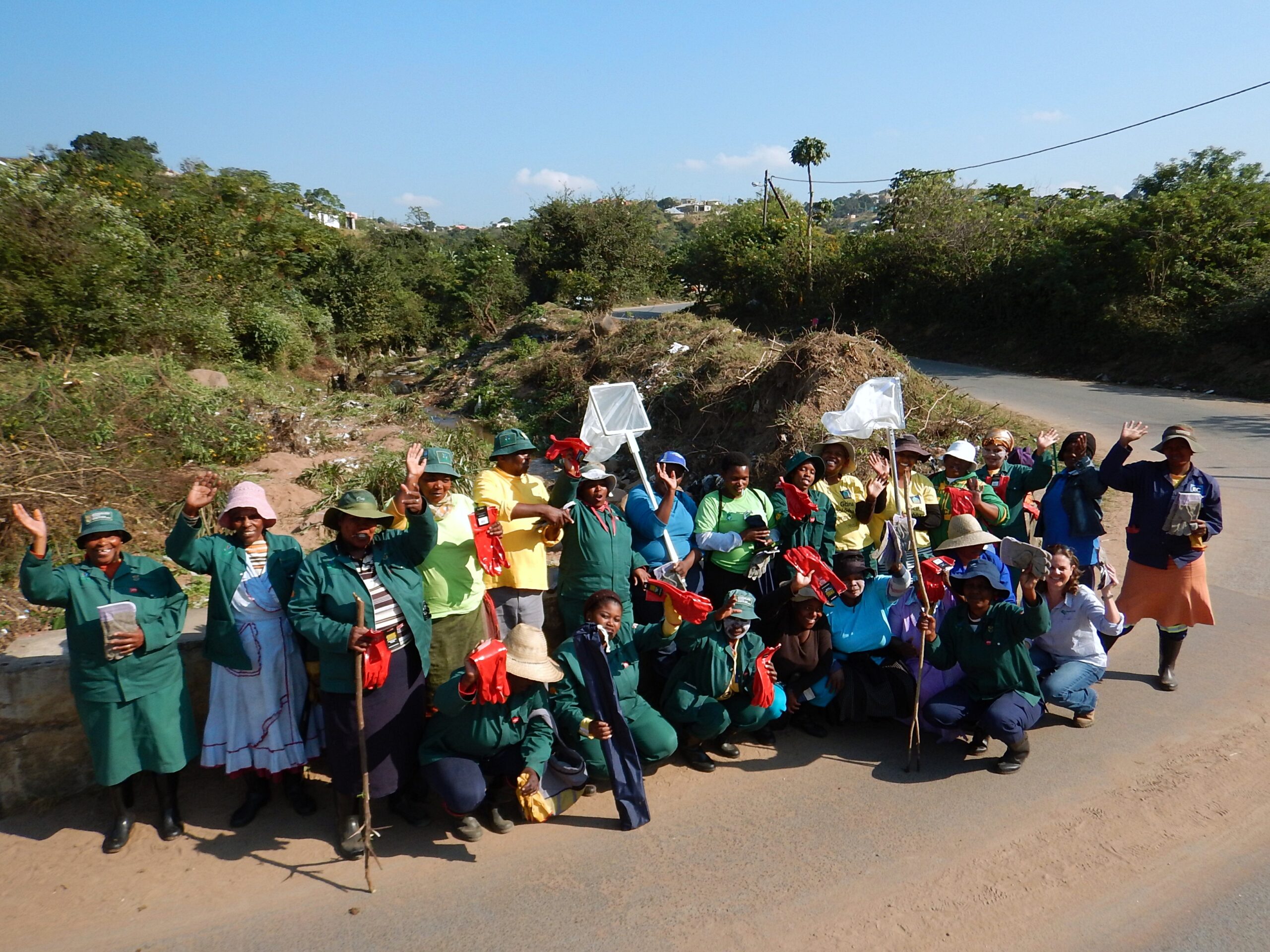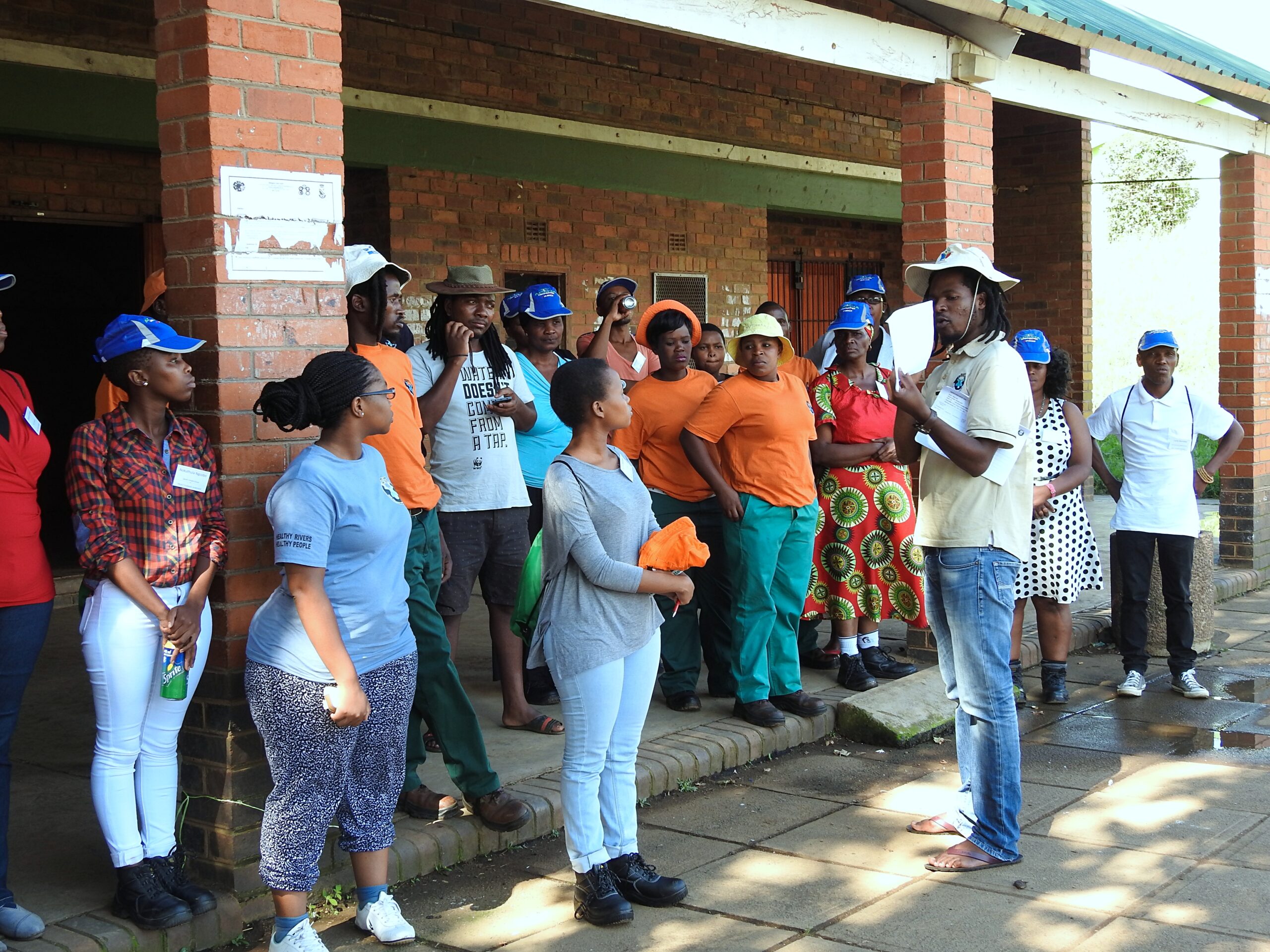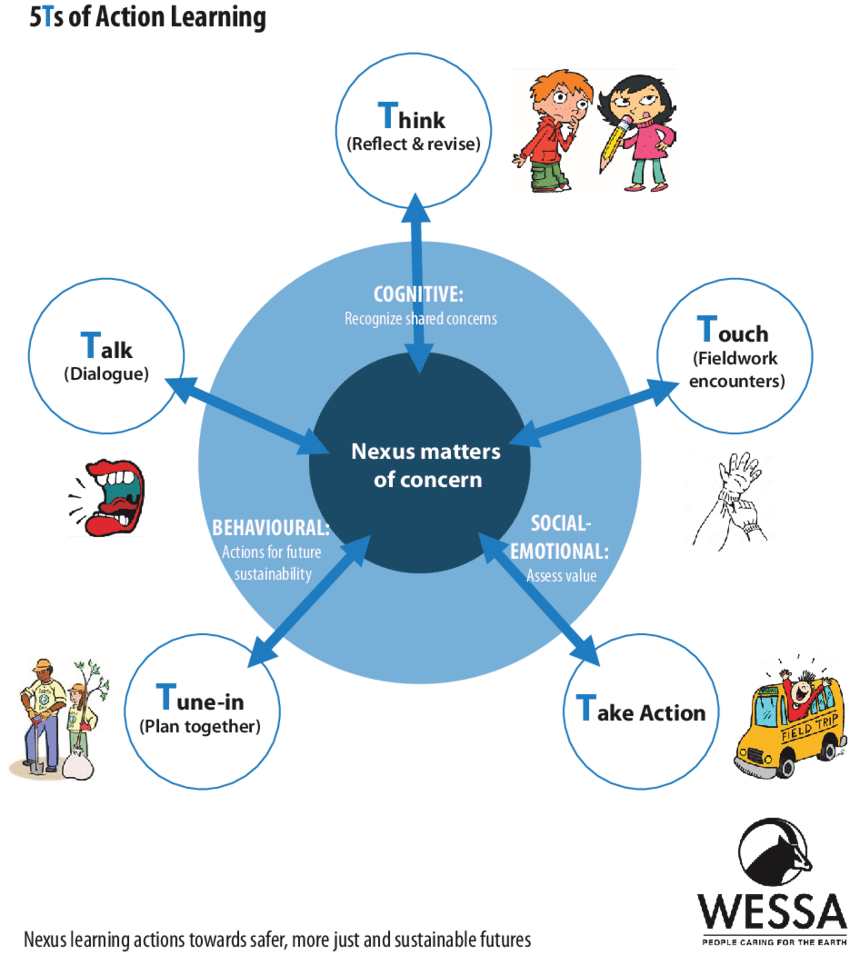Angie Garcia, Research Group Leader – Water Futures Data & Analytics at IWMI
Michael Scheibenreif, Regional African Drone & Data Academy Manager / Impact Youth Market (YOMA) Lead at UNICEF
Laura Keil, Princeton in Asia Fellow at IWMI

The Enviro-Champs are South Africa’s unsung heroes. They are the dedicated youth bridging the gap between nature and people. The Enviro-Champs initiative originated as a community-driven citizen science project in Mpophomeni township, KwaZulu-Natal, South Africa, with the primary goal of empowering local youth. Under guidance from the Duzi-uMngeni Conservation Trust (DUCT), their training initially focused on monitoring sewage leaks and illegal dumping. This was followed by successful engagement with municipal authorities. As the program gained momentum and received investment by the Presidential Employment Stimulus and the Social Employment Fund, it expanded its activities to include water leaks, community participation in waste management, and flood preparedness, combining to help address essential needs in South Africa’s socio-ecological landscape. Over time, technological enhancements like group text messaging and data collation in Excel were incorporated. Under the CGIAR Initiative on Digital Innovation, UNICEF and the International Water Management Institute (IWMI) recently signed a Letter of Intent to foster the training of young people as citizen scientists. This project will contribute to the UN’s environmental Sustainable Development Goals (SDGs).
Citizen science making impact on the ground
Presently, around 1,000 Enviro-Champs actively contribute to environmental monitoring, ecological restoration, and food security programs in KwaZulu-Natal. The program has demonstrated success in various KwaZulu-Natal regions and holds promise for additional national growth.
The initiative also addresses a fundamental problem of South Africa’s labor market: 64% of individuals aged 15 to 24 are not participating in formal employment or education opportunities. The Enviro-Champs initiative aims to help address this situation by offering essential skill development, resources for personal growth, and economic empowerment through work stipends to young people from rural or marginalized communities. The Enviro-Champs are trained and educated in various environmental functionality, monitoring, and management principles. This treats the Enviro-Champs not just as data collectors, but as involved researchers who grow in their capacity, understanding, and agency.

IWMI and UNICEF teaming up
The Impact Youth Market (YOMA) platform will be the official channel for the IWMI-UNICEF partnership, providing youth with green ‘learning to earning’ opportunities by advancing citizen science and data collection efforts through capacity building among youth. By integrating these efforts into IWMI’s project for the Limpopo Basin, IWMI aims to improve water management decision-making for stakeholders around the Basin. This strategy leverages community involvement and youth empowerment to gather actionable insights for sustainable water management and river health conservation.
IWMI has identified the Open Data Kit (ODK) Collect, a mobile data collection app, as a solution to enhance Enviro-Champs data collection, reporting, and management. ODK, in collaboration with FormShare (a data capture and management platform), can provide a technologically upgraded framework for the Enviro-Champs initiative.
Importance of adaptive learning
To date, the Enviro-Champs rollout has taken place on a small scale at local level through various uncoordinated methods. Through the CGIAR Initiative on Digital Innovation, a comprehensive framework for recruitment and training was synthesized from the best management experiences in this launch. The recruitment process follows a 7-step procedure. Training workshops cover various aspects including data collection, community engagement, and environmental safety. “The 5 Ts of Action Learning” guides the workshops. Enviro-Champs are trained in using smartphones for complex data collection across a wide range of environmental and community issues, while project managers have access to online, real-time data capture and management software for efficient reporting. Continuous capacity-building, feedback mechanisms, and adaptive training ensure the Enviro-Champs stay equipped for their roles, with potential for additional skills training based on local needs.

The deployment and training process is ongoing, emphasizing the importance of continuous support and adaptive learning. Importantly, this process addresses issues of technicism – the belief structure that focuses on quantities and techniques, rather than quality and values. The Enviro-Champs model provides two-way involvement of the Enviro-Champs that values action-learning and capacity building, rather than simply creating data collection points that can widen rather than bridge the digital divide.
The Enviro-Champs initiative effectively integrates indigenous knowledge, demonstrating its potential for fostering sustainable development. The need for ongoing support, feedback, and consideration of local contexts must be stressed to ensure the successful incorporation of digital innovations in community-driven projects. Citizen science will significantly enhance river health monitoring for water management.
Through this partnership, young people will not only turn into environmental stewards safeguarding their community; they will also acquire essential skills needed to lead humanity towards a green economy.
[embedyt] https://www.youtube.com/watch?v=VkSm4VDYY_Q[/embedyt]

